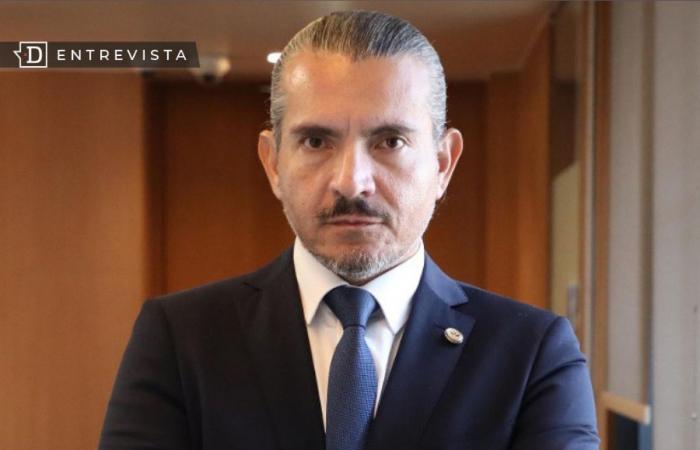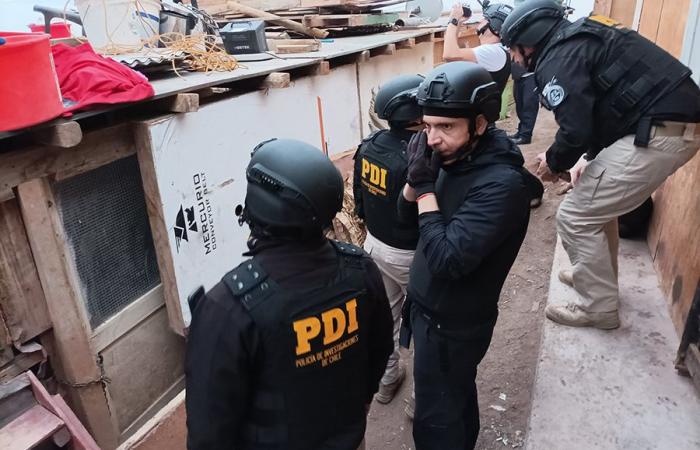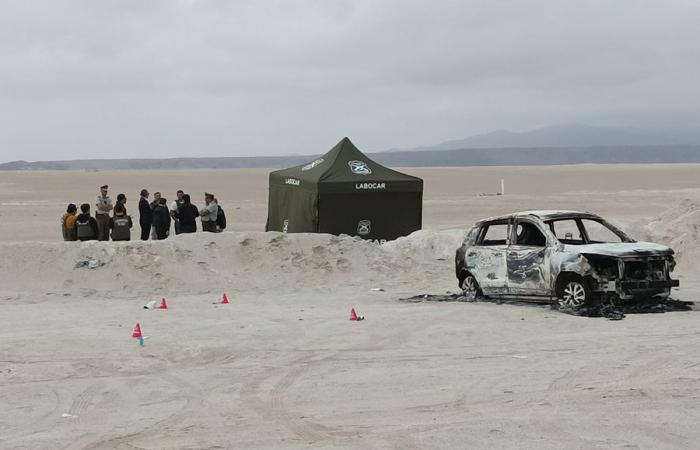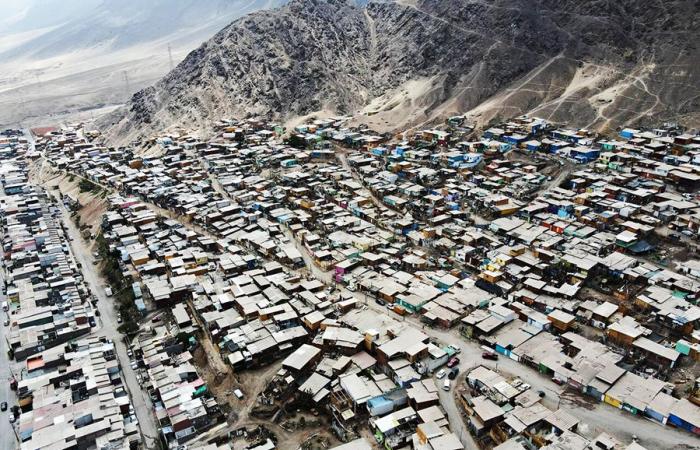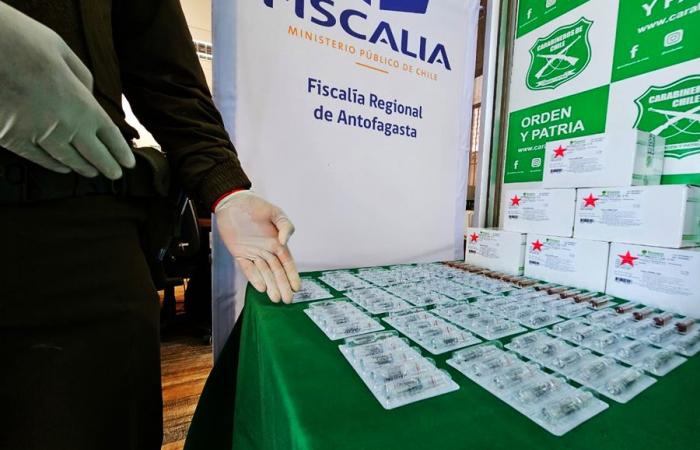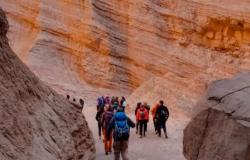In the space of eight days the prosecutor Juan Castro Bekios, who leads the Antofagasta Regional Prosecutor’s Office, managed to deal three historic blows to organized crime in the second region of the country.
On Monday, June 3, he “belled the cat” on cigarette smuggling by formalizing a “criminal association” to a gang that was surprised on the border with Bolivia interning almost 70 thousand packs of cigarettesa shipment that was valued at $200 million.
Four days later, on June 7, he obtained a historic conviction for illicit association, drug trafficking and money laundering against the drug trafficking group “Las Tías”, being the first sentence of this type in the history of the Criminal Procedure Reform in the Antofagasta region.
On Tuesday of this week he seized 1,195 vials of fentanyl, being the largest seizure of the “zombie drug” nationwide.
Confiscation of fentanyl vials / Antofagasta Regional Prosecutor’s Office
All this in June, the month in which the Antofagasta Prosecutor’s Office reached a historical record for drug seizures: in five months it surpassed everything seized in 2023 with a total of 13 tons, which is equivalent to 40% of all the drugs seized nationwide. national.
The key to achieving these results is the way of addressing organized crime, understanding it as a “crime holding company” that seeks to profit from any business that provides juicy dividends, from drug trafficking to the sale of contraband cigarettes, using, of course, all the technological tools that allow you to evade justice and hide the illicit origin of your profits, from the use of front businesses to launder money to foreign accounts, virtual wallets and cryptocurrencies.
Another aspect is to understand the links between apparently independent and unconnected illicit businesses, but which are secretly part of the same criminal ecosystem, such as the link between vehicle theft, drug trafficking and the sale of weapons.
That’s where the Prosecutor’s Office for Analysis and Complex Crime (FAAC)one of the commitments that Castro Bekios assumed when he took charge of the Antofagasta Regional Prosecutor’s Office in October 2023.
«It was one of my proposals due to the need to have a specialized Prosecutor’s Office that, in addition to seeing crimes associated with organized crime, would also see other phenomena such as, for example, cases of corruption. Just as an example, some of the agreed cases that we have are in this same Criminal Analysis and Complex Crime Prosecutor’s Office.he says in conversation with El Desconcimiento.
All the work that the Public Ministry is carrying out in the Antofagasta region in the criminal prosecution of criminal organizations is based in the FAAC, which operates in conjunction with the Prosecutor’s Office of Investigative Focus and Criminal Analysis (SACFI) and the Organized Crime and Homicide Team (ECOH).
Juan Castro Bekios in Operation Olimpo / Antofagasta Regional Prosecutor’s Office
Thanks to the work carried out by the FAAC, in the early hours of Tuesday, May 7, the Investigative Police (PDI) carried out the “Operation Olympus” in the Genesis 2 camp in Antofagasta, where the gang led by “Zeus” or “Satanás” was dismantledalias of Javier Valencia González, a dangerous criminal of Colombian origin who had international arrest warrant for drug trafficking, kidnapping, weapons possession, extortion, homicidescrimes committed in both Chile and Colombia.
The analysis of vehicle receptions in the region was also the work of the FAAC, which showed that 47% of the cars recovered in Antofagasta were stolen in other regions of the country.
This FAAC analysis can explain, for example, why a truck stolen in the Metropolitan region appears more than 1,300 kilometers away in a mining pit in the Antofagasta desert.
“We know that many of the stolen vehicles are taken to the border with the purpose of being exchanged for drugs or weapons, or taken out of Chile to be sold on the illegal market in neighboring countries. So, what the FACC figures show us could clearly be evidence of this criminal phenomenon that is affecting us,” said Castro Bekios after releasing the study that analyzed 1,086 vehicles recovered from 2022 to 2024.
Territory ripe for organized crime
Antofagasta has a series of geographical characteristics that make it the natural border that criminal gangs must overcome to bring illicit products to the center of the country.
It is the widest region in Chile and shares a 150-kilometer border with Bolivia, one of the largest cocaine producers worldwide. The closest city to the north is Iquique, which is five kilometers away. To the south is Chañaral, a small city that is more than 370 kilometers away in a desert area with multiple unenabled crossings, where the technological and human resources available to the police are always insufficient.
«Remembering the different telephone interceptions, for criminal organizations the first major objective is to move to Antofagasta. Passing Antofagasta they know that the possibilities of detecting them are very low.says Castro Bekios.
It is in this territory where a series of illicit factors and businesses converge, ranging from drug trafficking and vehicle theft, to extortion, hitmen and cigarette smuggling.
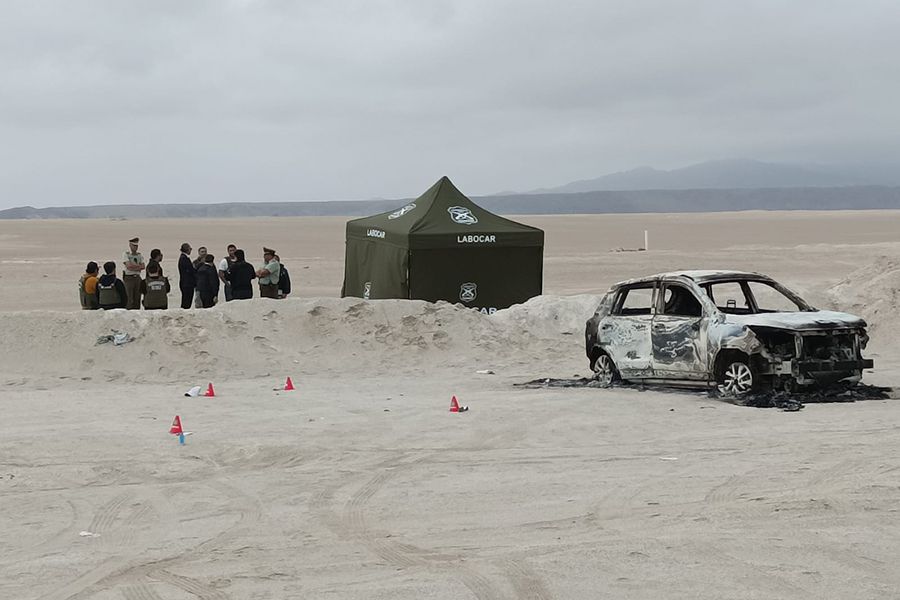
Carabineros and ECOH personnel in the Antofagasta desert / Antofagasta Regional Prosecutor’s Office
«The analysis is that there are several elements that come together in the criminal reality that is happening in the Northern Macrozone, but especially in the Antofagasta region. A kind of bottleneck where different criminal phenomena converge in the same place. That is what is happening in the second region », he explains.
Camps to exercise territorial control
According to data released by CEILING Chile and Zero Deficit87% of the families living in large camps in Antofagasta are migrants.
In that sense, Castro Bekios points out that it is in these seizures where organized crime has territorial control through the subjugation exercised by the gangs on a sector of the population, mostly migrants.
«Before they were basically organizations of Colombian origin, now with new members of Venezuelan origin in Antofagasta and Calama. They operate in the same way, that is, exercising territorial control, which means exercising violence, intimidating the people who live in the camps, charging them for all the services that exist, taxes or ‘vaccinations’ for any type of legal activity. or illegal activity carried out inside the camps”says the prosecutor.
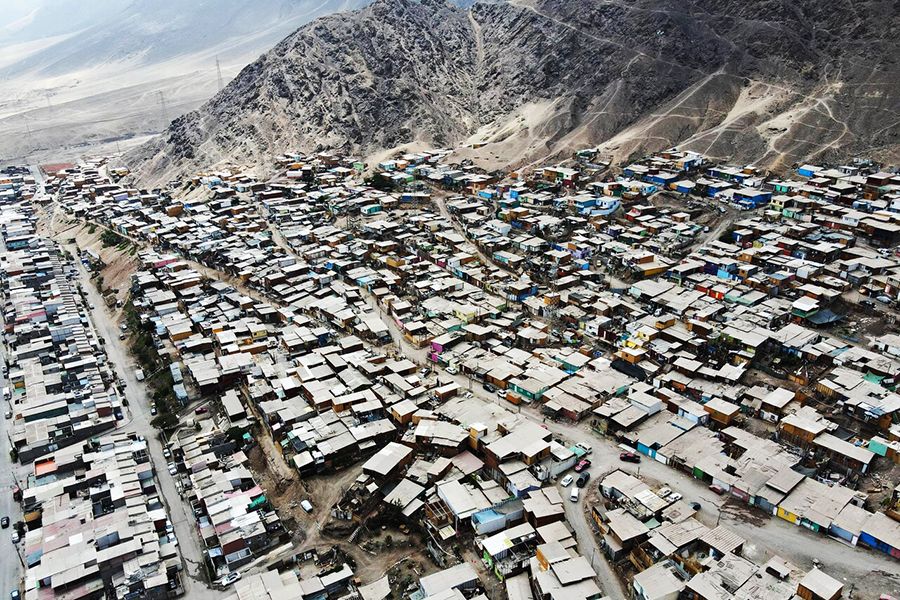
Camp in Antofagasta/ Agencia Uno
Although the work of the Antofagasta Prosecutor’s Office has had record figures in drug seizures, such as, for example, that 70% of drugs nationwide in 2023 were seized in the region, Castro Bekios is aware that if there is no a state policy in the medium and long term, other criminal gangs will occupy the space left by the groups that are dismantled.
«Regardless of what the Public Ministry can do in criminal prosecution, it cannot provide a housing solution. It has to be a State policy where all State bodies intervene, but it must also be a medium and long-term policy, because the camps are not a situation that can be solved in the short term, it is impossible. With the shortage of housing in the Antofagasta region, given also the cost they have, it is impossible to take care of it.”he points out.
Along these lines, Castro Bekios tells what he has been able to perceive in the people who live in the camps when they carry out raids. «You realize immediately that they are trying to lead their lives normally. They show a tranquility and happiness that is very discreet, with a lot of fear, because I think they know that once the raid is over and the criminal organization leaves, another one can return,” he says.
Fentanyl and cryptocurrencies
“We have no record of another seizure like this, we are talking about 1,195 vials of pharmaceutical fentanyl,” said Castro Bekios when announcing the largest national seizure of the so-called “zombie drug.”
The drug was found in a raid carried out by the Carabineros OS7 at a home on Patricio Cariola Street in Antofagasta, where it was also seized. cocaine hydrochloride, a rifle magazine pouch, two metal rifle magazines, tactical clothing, compasses, a tactical knife and tactical vest covers.
Fentanyl is 50 times more powerful than heroin, a drug that is wreaking havoc in US cities such as Los Angeles and California.
In Chile, the Journalism Research and Projects Center (CIP) from the Diego Portales University continued the fentanyl route in national territory. Since 2017, at least 199 vials have been stolen from hospitals and clinics in the Metropolitan region. In 2021, the Sanderson laboratory reported the theft of 1.6 kilo of fentanyl from its warehouse.
At the international level, the two countries that would be involved in the production and distribution of the drug are Mexico and China. The Sinaloa Cartel and the Jalisco Cartel supply chemicals that are imported from China, and then distribute them to different cities in the United States such as Seattle, Atlanta, Los Angeles and Chicago.
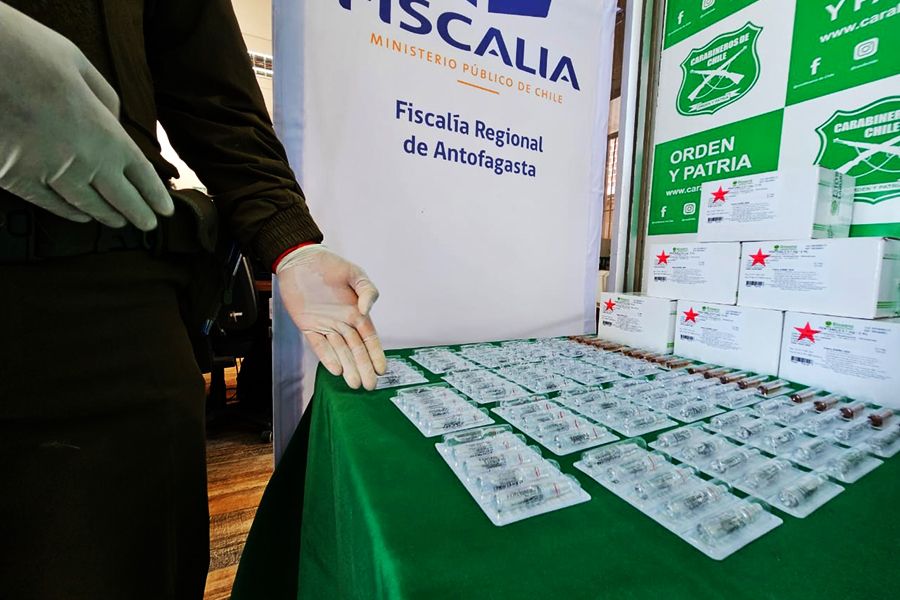
Confiscation of fentanyl vials / Antofagasta Regional Prosecutor’s Office
This is just an example of how transnational organized crime operates, where it is increasingly difficult to follow the money route, a reality to which Chile is no stranger.
«We are not going to find current accounts from the private banks that we have in our country. There we have a challenge that is related to the work of monitoring and seizing crypto assets, that is, cryptocurrencies, which is one of the working hypotheses that we handle that can be used to carry out money transfers, especially in the case of criminal organizations. “foreigners”says Castro Bekios.
In that sense, the prosecutor points out that collaborative work between countries is essential. «It is important to add the work with our peers in the region, the issue of international cooperation, but not only as discourse but as international and effective cooperation with our peers, with the prosecutors of the countries that surround us: I am referring to Bolivia, Argentina and hopefully also Colombia and Paraguay,” he points out.
«It is very naive to think that we are going to confront organized crime autonomously, in isolation. The only way is with a transnational perspective and that requires effective, fast and efficient international cooperation, so that all countries in the region can confront organized crime with similar tools and efficient coordination.close.


